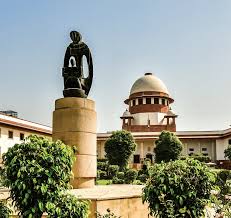Whereby Original Petition No. 80 of 1999 (for brevity, “Complaint” hereafter) filed by the Appellant was dismissed. (Para 1)
The incident of leakage of gas, on 4th October 1997 to be precise, the Appellant informed the Respondent and the District Horticulture Officer of the same, whilst requesting an inspection of the Facility. (Para 2(d))
The Appellant, on 14th October 1997, filed a claim with the Respondent claiming an amount of Rs.1,03,15,080/-. Therein, the damage was claimed in respect of 85,956 bags of potatoes, each weighing around 80kg, where the amount claimed was calculated at Rs.150/- per quintal as per the stipulations of the Refrigeration Policy. (Para 2 (f))
The issue which arises for determination, in the present appeal, lies within a narrow compass, i.e., whether the NCDRC was justified in rejecting the Complaint of the Appellant holding that there is no deficiency of service on the part of the Respondent. While deciding this issue, we would necessarily be required to assess the relative weightage to be placed on the report of the Surveyor appointed by the Respondent as well as the reports of the Loss Assessor and the Experts appointed by the Appellants regarding the possible cause for leakage of ammonia gas. That there were four reports on record before the NCDRC, one from the side of the Respondent and three from the Appellant’s side, is not in dispute. (Para 16)
While it is true that the Experts’ reports were based on their visual impression of the pipes, it is equally true that it is the Appellant who had appointed them. The NCDRC rightly observed that the reports “cannot be treated as totally independent as it was the complainant who made a choice of his experts”; nevertheless, there are certain general observations in such reports to be noticed hereafter which do help us in our search for the truth. (Para 24)
Absence of consideration of relevant factors is, therefore, writ large on the Surveyor’s Report. The reports of the Loss Assessor and the Experts dwelled on general aspects of scientific observations relating to the absence of friction or movement when ammonia passes through the pipes and its alkalinity (non-acidic nature) not being corrosive to the pipes as well as the manufacturing details, and specifications of the pipes, which are conspicuous by their absence in the Surveyor’s report. It seems, all relevant factors were not considered in the proper perspective by the Surveyor, yet, such Surveyor’s Report was relied on by the Respondent to defeat the claim of the Appellant. The report having recorded the ipse dixit of the Surveyor, without any reference to the aforesaid aspects touched upon by the Loss Assessor and the Experts, the same is, in our opinion, not worthy of acceptance. (Para 30)
It seems to us that the NCDRC made observations in the impugned judgment as if its members were experts in the relevant field and clothed with authority to sit in appeal over the same. (Para 31)
Considering all these factors and the attending circumstances and by applying the standard of proof of preponderance of probabilities, we feel inclined to lean in favour of the inference that the version of the Appellant, was more probable, i.e., that the leak of ammonia gas was not occasioned due to wear and tear (as claimed by the Respondent) but was the outcome of an accident10 which was not foreseen and beyond its control and not covered by any of the exceptions in the Refrigeration Policy (Exception Clause 3) so as to entitle the Respondent to claim immunity for the ultimate purpose of repudiating the insurance claim lodged by the Appellant. (Para 32)
Ends of justice would be sufficiently served by granting to the Appellant a lumpsum amount of Rs. 2,25,00,000/- towards full and final settlement of the insurance claim. (Para 35)
SUPREME COURT OF INDIA
2023 STPL(Web) 151 SC
[2023 INSC 689]
S.S. Cold Storage India Pvt. Ltd. Vs. National Insurance Company Limited
Civil Appeal No. 2042 of 2012-Decided on 8-8-2023
https://stpllaw.in/wp-content/uploads/2023/08/2023-STPLWeb-151-SC.pdf







